Not Just an Idea But What Then?
When a Vance claims that America is not just an idea but a nation, he is in a literal sense merely stating a truism. But what he’s really doing is making a kind of ethical appeal: he and his political allies will represent the actual interests of Americans in a way his opponents won’t.
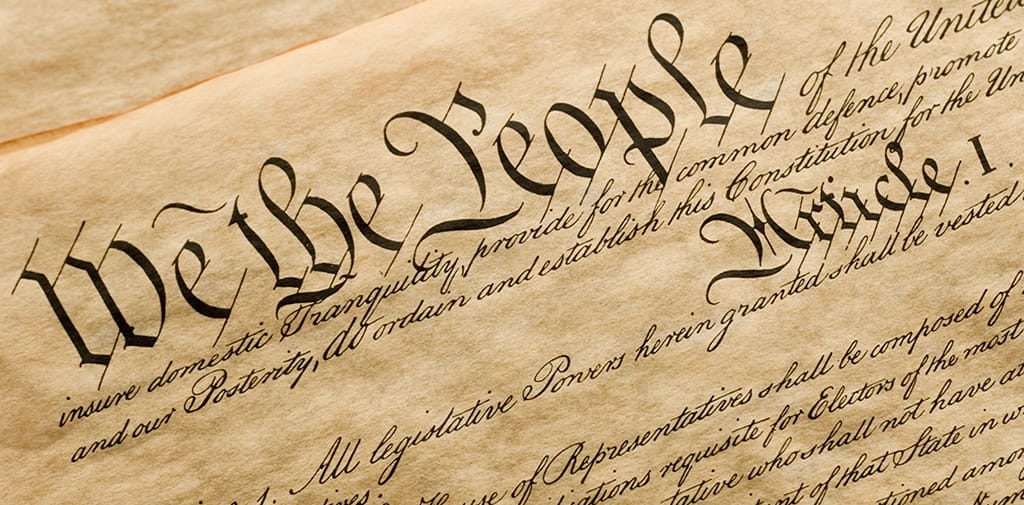
Amidst the excitement of the RNC, the new GOP Vice Presidential nominee, JD Vance, made what was probably the most substantive speech of the evening—yes even including Hulk Hogan and Kid Rock. He began with what has become an increasingly common claim in certain quarters: “America is not just an idea. It is a group of people with a shared history and a common future.”
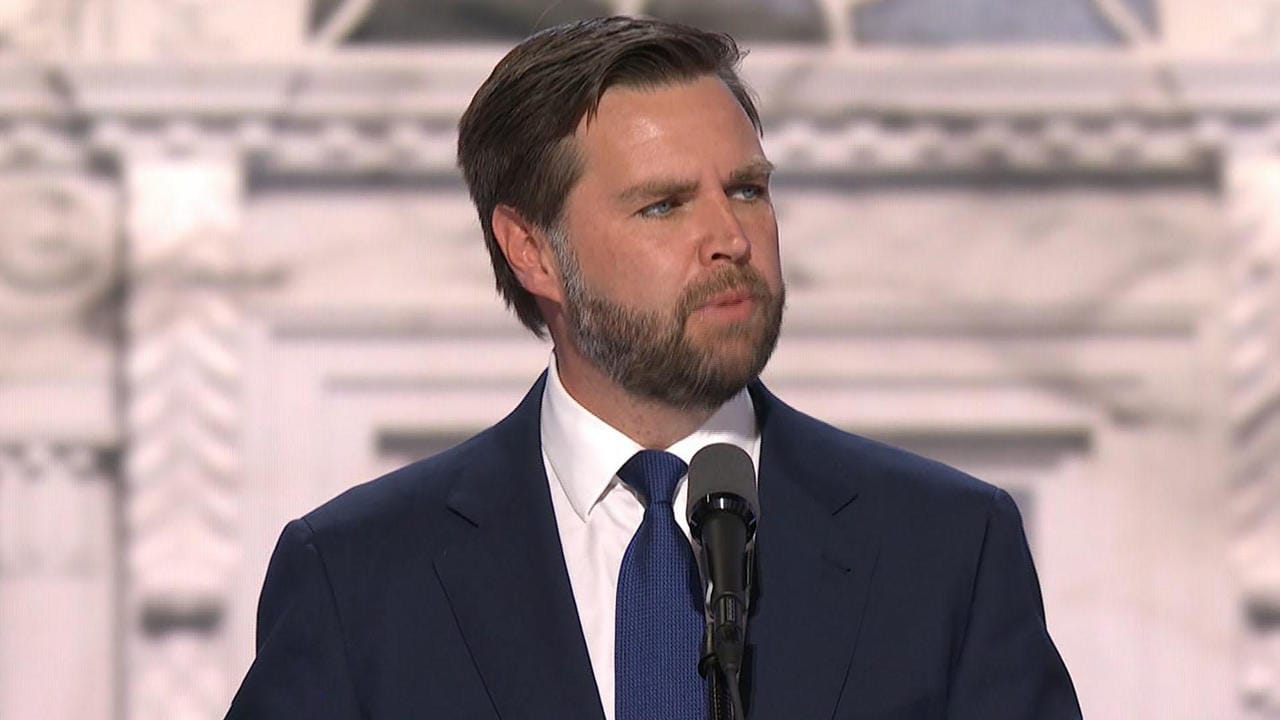
This generated near-immediate criticism from left-liberal scolds like Adam Serwer, as well as even more immediate praise from integralist types like Notre Dame professor Patrick Deneen:
Epitaph for West Coast Straussianism:
— Patrick Deneen (@PatrickDeneen) July 18, 2024
“America is not just an idea, is a group of people with a shared history and common purpose” - @JDVance1
RIP Jaffaism, 1979-2024
(For those who don’t understand what Deneen means here—just be grateful.)
Now, Vance presented this claim as being somehow contrary to the conventional wisdom, but I’m inclined to wonder if it isn’t becoming as much a cliché as saying “America is an idea.” More to the point, both the criticism and the praise were mainly a function of overexcitable commentators, who should have really known better. We’ve heard a lot over the years about false binaries—probably too much. After all, some binaries are pretty real. But this is pretty much a false binary if I ever saw one. The notion that any country could ever be “just an idea” or “just a place” is chimerical. All modern countries are both.
Indeed, Vance himself qualifies his initial claim in the very next sentence, saying: “And to be clear, America was indeed founded on brilliant ideas like the rule of law and religious liberty – things written into the fabric of our Constitution and our nation.” Well.
What is the point of all this, then? On the one hand, the point of this kind of rhetoric is to play a trump card on the question of patriotism. The patriotism of the “America is an idea” crowd is possibly suspect—it produces a thin, watery version of the thing. We get references to our founding documents perhaps—maybe they’ll throw in some of Lincoln’s grander speeches + some Ellis Island nostalgia--but not much more. And beyond this you get the default cosmopolitanism of media and financial elites (which is, in the end, it’s own form of particularism—“us worldly types are nothing like those parochial hicks,” etc.).
But on a deeper level, this kind of talk is expressing a commitment to the idea of rootedness. The trouble is that it ultimately tells us very little about the content of those roots. This is the postmodern trap: once you make rootedness a matter of intentionality in this way, you’ve already conceded your unrooted status.
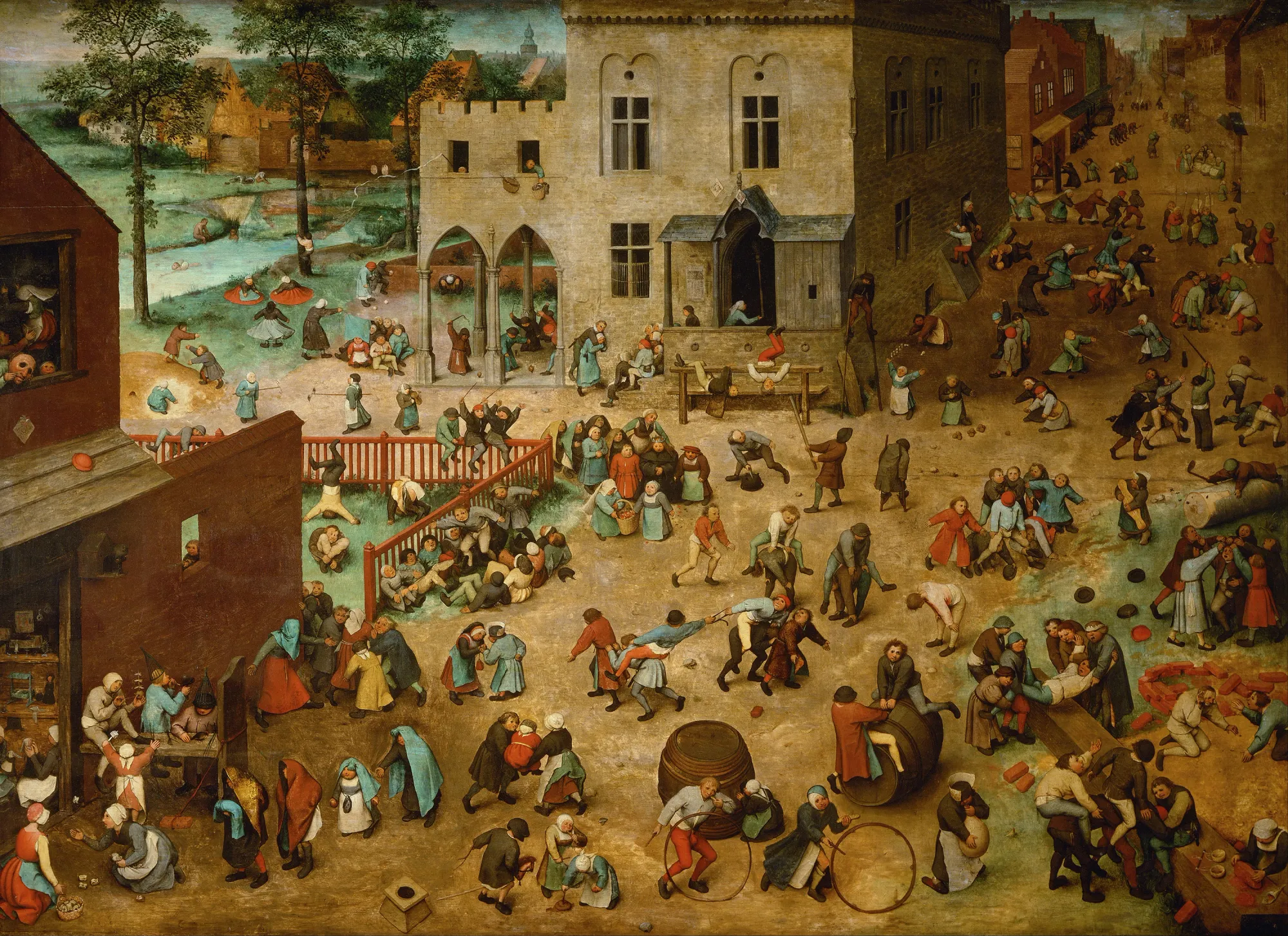
Those peasants in Brueghel's paintings don’t have to reflect on the choiceworthiness of being rooted. They just are (plus they’ve got other, more practical, problems to deal with). It’s a bit like how we hear endless talk of “the political” in modern life—something the actual residents of the ancient Greek polis never had to discuss because they just lived it.
I am 90% percent sure that I’m stealing this next example from Freddie DeBoer, as I can’t actually find the reference, but here goes anyway. At the conclusion of Disney’s Aladdin (the cartoon one—I’ve never see the live-action version), the film’s underlying dilemma comes to a head: Aladdin is a commoner and thus cannot marry a royal like Princess Jasmine. This dilemma is resolved when her father, the Sultan, proclaims that it is simply within his power to decide who gets to marry, and that’s the end of it.

Something like this is the problem that confronts our present advocates of rootedness, who could only be in the position of insisting that America is a real place after they and others had widely come to doubt it. And this is also why such proclamations tend to dead-end here: once they’ve made the rhetorical point, they run out of things to say, because they have not really identified the authentic place they are speaking of in concrete terms.
What, though, could they say? Chesterton once said that “The patriot never under any circumstances boasts of the largeness of his country, but always, and of necessity, boasts of the smallness of it.” I’ve always liked this line, but there’s no getting around the fact that our country isn’t small.
Is America a “real place”? Sure. But which place? This is a country of over 3.7 million square miles with a population of some 330 million people. Easy Rider’s famous tagline--“A man went looking for America. And couldn’t find it anywhere...”--is deeply mockable, but also where would you find it? Any attempt to fix such a place inevitably relies upon abstraction. One has better luck with regions—New England’s flag-draped colonial houses and lobster boils; the Tidewater’s salt marshes and flattened accents; the Deep South’s kudzu and wellsprings of so many musical idioms; the sheer awesome size of the West. One could go on almost indefinitely here but I’ll spare you.
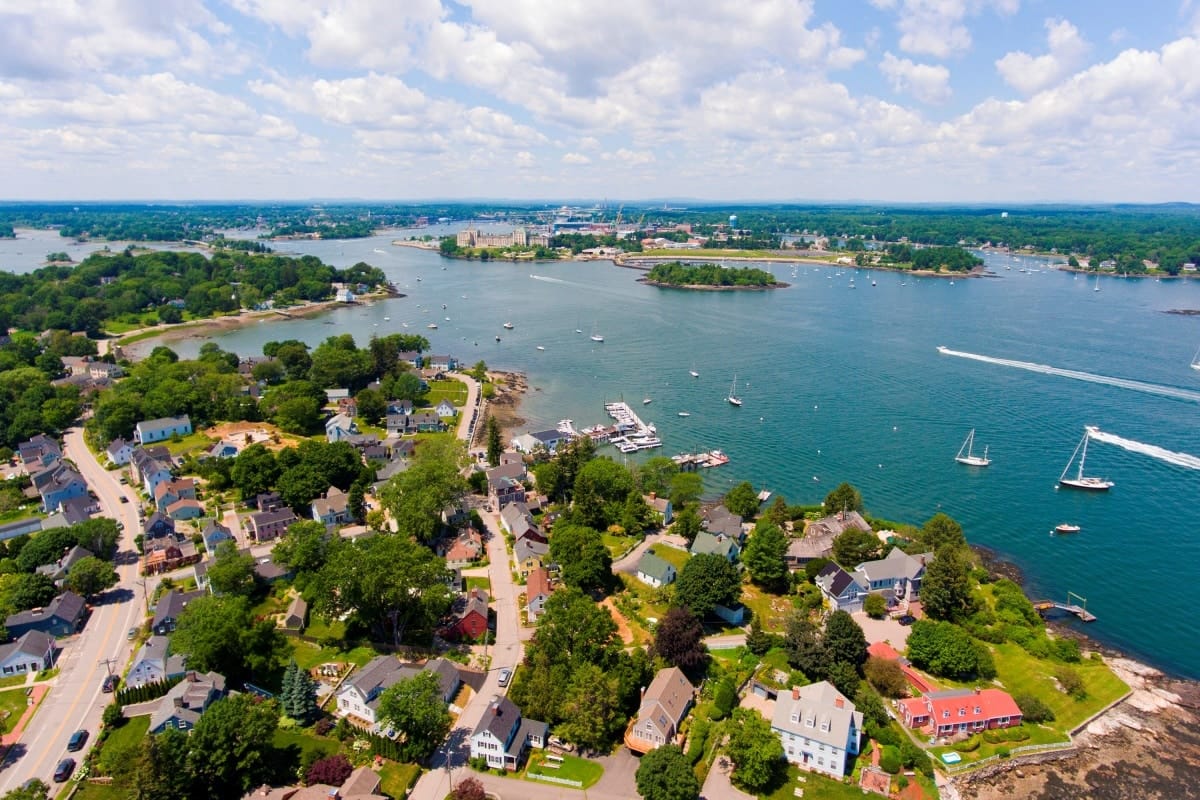
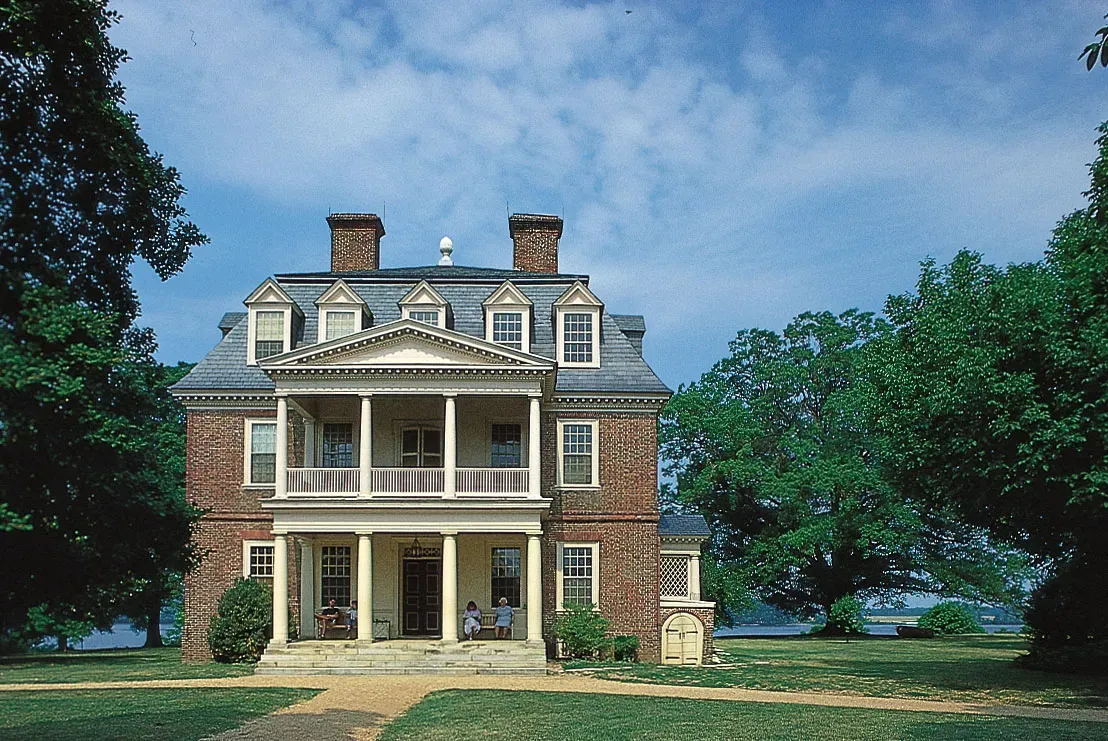
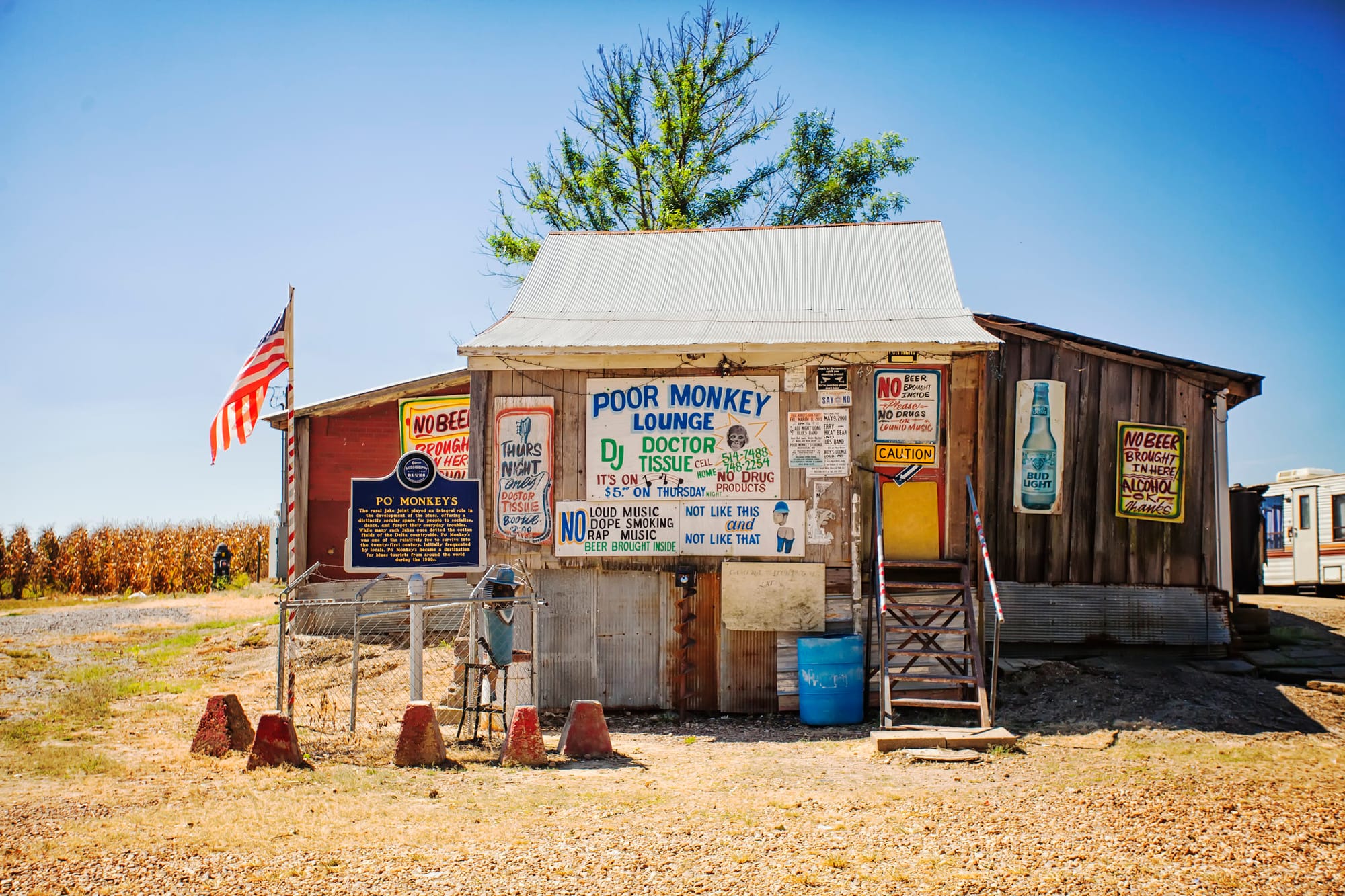

Which is the real America?
Nor is this simply a matter of size. There is no small irony in the fact that the smallest countries like Vatican City or Monaco or Liechtenstein are pretty far from being authentic patriae. But let’s take a more “normal” country. Italy is far smaller in both geographic scale and population, and moreover its cultural signifiers are “thicker” than those of, say, the United States or Canada (just compare their respective Epcot pavilions). But drill down a bit, and one is confronted with increasing diversity. The Veneto is distinct from Rome, which is distinct from Tyrol, which is distinct from Calabria (and forget about Sicily). Not for nothing were northern Italians prone to remarking that "Garibaldi didn’t unite Italy; he divided Africa."
In any case, of course Italy is an idea. It had to be invented—and quite late too in the context of modern state-formation. It was not all obvious to the people who had resided there for thousands of years that this was a natural thing. Why else would it have taken until 1861? The Romans of course united the peninsula but then kept right on going. Their successors, the ancient Ostrogothic kingdoms were short-lived, partial things, and it remained divided in various ways for centuries thereafter, despite the fact that the Italic peninsula looks for all the world about as naturally unified a country as you’ll find (mountains on top, coastline everywhere else).
More broadly, those who insist on the idea/place distinction are making this a parochially American question, when in fact it is really a larger problem of nationalism. Charles De Gaulle, who is about as far from being an American as you can get, famously opened his memoirs by declaring that all his life he had had "a certain idea of France." Of course no one who visits France fails to come away with a rich sense of its culture and history.
The point is that the idea of a country and its placeness are not oppositional things but very much bound up with one another. It requires an idea (really a set of mutually constitutive ideas) to hold that the Florida Keys and Michigan’s Upper Peninsula are really just different parts of the same thing. We cannot but make sense of the scale and variety of modern nation—not to mention the authority of a shared government—without this idea, and the idea would be simply fantastical without the material it describes. This is just one reason why attempts to create supranational forms of governance have either encountered sharp limitations (the European Union) or simply failed (pretty much everything else).
I don’t mean to suggest that people go around with abstract ideas of nationhood in their heads, and these in turn make possible the existence of modern countries. That would be frankly silly. Near the outset of his Ancien Régime and the Revolution, Tocqueville makes the remarkable claim that the emerging Enlightenment doctrines of natural equality and popular sovereignty weren’t independent causes of the French Revolution; they were the revolution. In other words, the ideas were inextricably bound up with the broader social and political changes associated with the events that led up to the Revolution. They did not exist in some independent state outside of normal human activity.
I think this is a useful way to think about nationhood—and not just American nationhood—as an idea. It is not an abstraction in any meaningful sense, because it is inevitably linked with a wide variety of practices, both formal (border control, passport issuance, voting, military service) and informal (flag-waving, standing for anthems, expectations of portion sizes). These latter in particular are the kinds of things George Orwell identifies as distinctly English that exist without codification:
When you come back to England from any foreign country, you have immediately the sensation of breathing a different air. Even in the first few minutes dozens of small things conspire to give you this feeling. The beer is bitterer, the coins are heavier, the grass is greener, the advertisements are more blatant. The crowds in the big towns, with their mild knobby faces, their bad teeth and gentle manners, are different from a European crowd. Then the vastness of England swallows you up, and you lose for a while your feeling that the whole nation has a single identifiable character. Are there really such things as nations? Are we not forty-six million individuals, all different? And the diversity of it, the chaos! The clatter of clogs in the Lancashire mill towns, the to-and-fro of the lorries on the Great North Road, the queues outside the Labour Exchanges, the rattle of pin-tables in the Soho pubs, the old maids hiking to Holy Communion through the mists of the autumn morning – all these are not only fragments, but characteristic fragments, of the English scene. How can one make a pattern out of this muddle?
How indeed? These are practices and traditions recognizable to both citizens and foreigners that don't quite require any abstract systems of thought, and yet they are animated by shared ideas of what makes England England.
Of course, when people like President Biden or Bono say things like “America is an idea,” they are not really making a claim for Berkleyan idealism. They are really making a claim about the kind of country that America is. Namely one that is not conditioned on a particular ethnicity but is notionally open to all comers. And, it must be said, they are diminishing the value of local particularism in favor of the values associated with urban cosmopolites, who themselves are prepared to take moral and political instruction from supranational institutions.
Conversely, when a Vance claims that America is not just an idea but a nation, he is in a literal sense merely stating a truism. But what he’s really doing is making a kind of ethical appeal: he and his political allies will represent the actual interests of Americans in a way his opponents won’t, owing to their differing conceptions of the American nation. But one might note how little he actually says about the substance of the American nation as he understands it. What he actually talks about are his forebears in eastern Kentucky, which is not America per se but rather a particular part of America with its own distinctive history, geography, folkways, and so forth. Nor is Vance, whose wife was born to Telugu-speaking Indian immigrants, making an exclusionist case for his people as the “true” nation. In the end, he is compelled to fall back (like most people who make this case) upon a kind of inclusive particularism. There is nothing wrong with this position in principle--but it doesn’t really avoid the “nation as idea” problem that it sets out.
We can expect to continue to hear dueling claims about the true status of the American nation. And further discussions on this theme are likely to be emotion-laden especially by the members of the existing cottage industry devoted to seeking out the faintest hints of fascism. Under the surface, however the differences between these visions of America or unlikely to go much beyond rhetoric. In particular, it remains to be seen whether this emerging iteration of the GOP will manage to execute genuinely radical policies—above all where immigration and foreign affairs are concerned. Even if they prove able to do so there is no necessary connection between this rhetoric they have adopted and such policies.
All of this is really just to say that “America is not just an idea” is, in the end, itself another idea. And so it goes.
